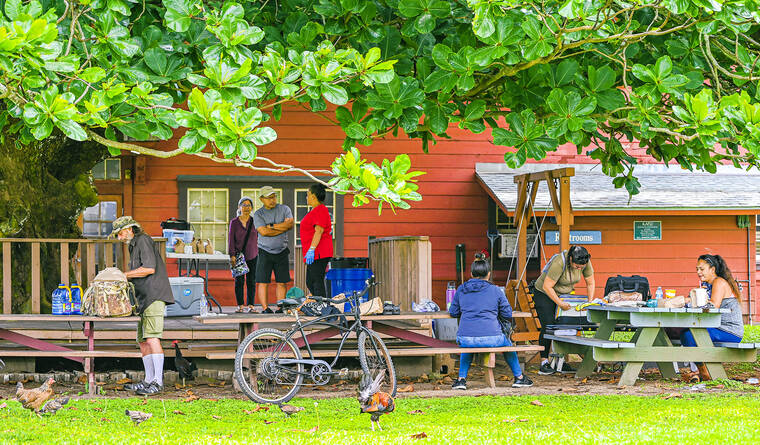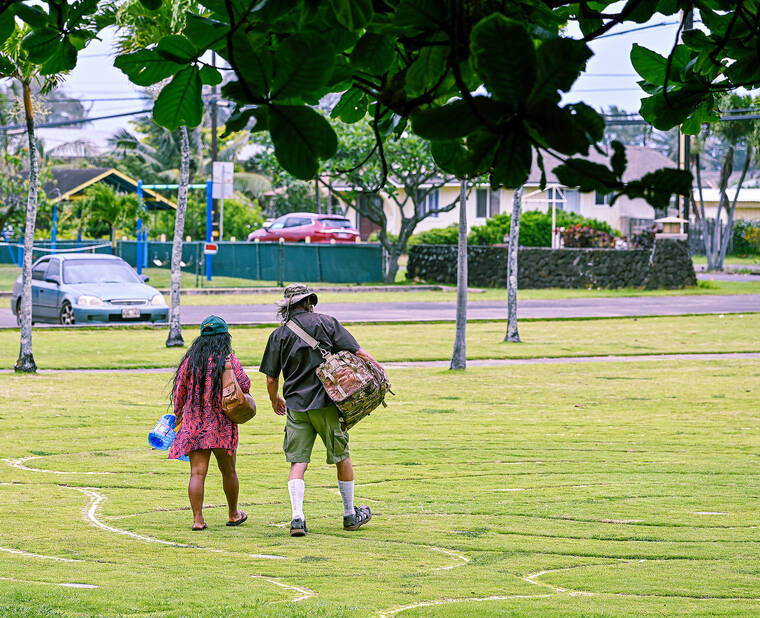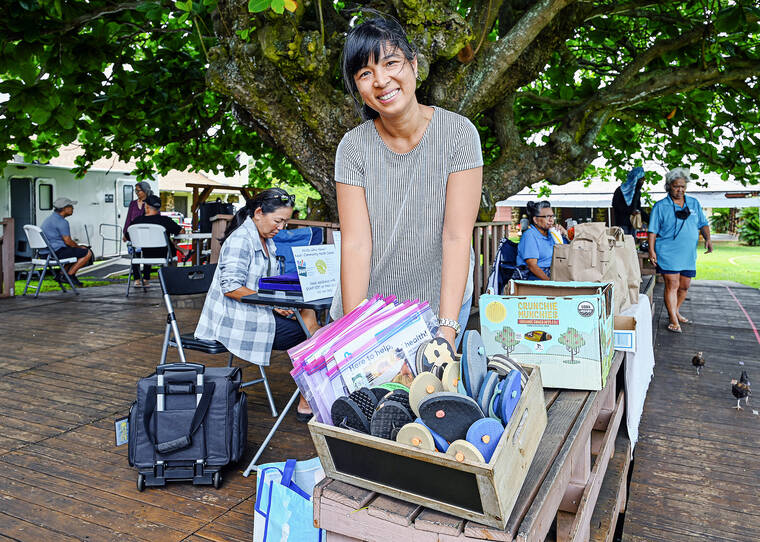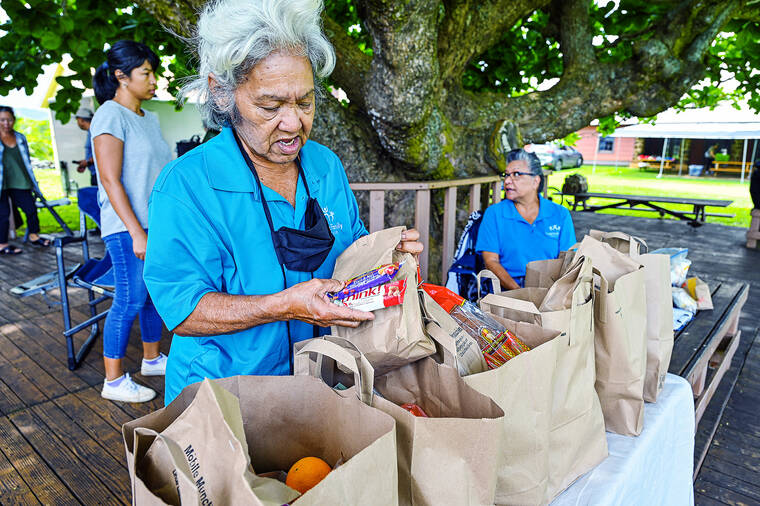LIHU‘E — A new measure aims to create a state-run program to pay for homeless people to be sent back to the mainland, continuing the efforts of a grant program implemented by the Hawaii Lodging and Tourism Association.
House Bill 1366, introduced by Rep. John Mizuno (D-District 29), would create a three-year “return-to-home pilot program” to pay to fly back homeless people to the mainland to be “reunited with family and relatives in their home state.”
The preamble to HB 1366 states that “many homeless individuals from the continental United States are currently stranded in the State, lacking independent financial resources to return to their home states.”
The bill states that homeless individuals may find that their families or home states have more resources to provide support, and would therefore provide financial assistance and other logistical help for them to leave Hawaii for the mainland.
The funding, which is planned to come out of the state budget for fiscal year 2023-24 and 2024-25, requires the state Department of Human Services to assist homeless people who make a “completely voluntary” decision to leave the state.
Cathy Betts, the department’s director, previously raised some concerns with the bill. Betts said that a state-funded and state-implemented program could “attract individuals to come to Hawaii, knowing they may have access to a one-way return ticket by claiming to be homeless and lacking resources to return,” she said in submitted testimony from February.
The bill’s idea is not a new one, as it would continue similar repatriation programs implemented at various nonprofits through grant money from the Hawaii Lodging and Tourism Association (HLTA). HLTA President &CEO Mufi Hannemann submitted testimony in support of HB 1366 in February, stating the HLTA has been coordinating repatriation programs for homeless individuals across the state since 2014.
He said that from 2014-19, the HLTA, along with its partner organizations, paid for half of the airfares to send nearly 800 people back to the mainland. “Just 2 percent have returned to Hawaii,” Hannemann said, adding that he believes the high level of success is due to the requirement that individuals be met by a family member on the mainland.
HLTA’s Director of Communications Jared Ellis told The Garden Island that HB 1366 “does not replace these efforts; it simply sets up a State-overseen version of the program,” he said in an email response earlier this week. “It does not look exactly like our program, but we still feel it will serve as a facet of the state’s overall homelessness efforts,” he said of the bill.
The HLTA’s repatriation program has been operating on Kaua‘i for the past several years through a $25,000 grant given to the Kaua‘i Economic Opportunity (KEO), a nonprofit organization that operates various homelessness programs in the county.
KEO’s Program Director Stephanie Fernandes said from 2017 to March 31, 2023, a total of $6,687 of those funds had been spent on airfare to send homeless clients back to the mainland. Fernandes did not know how many people on Kaua‘i had used the service, but she said that “not many of our clients choose to return home — even when offered.”
Fernandes was unaware of HB 1366, but she described the KEO repatriation program already in place.
“Until approximately 2020, we could only pay for half of the airfare. The HLTA then notified KEO that the agency would be able to cover the full amount of our client’s airfare,” she said.
“Part of this application is that I need to have verification from whoever is going to meet our client at the airport and provide housing, whether it be temporary housing until they get back on their feet. So that’s the number one thing I have to have is an assurance that we’re not sending someone homeless back to homelessness.”
Kevin Malapit, a shelter coordinator at KEO, was also unaware of HB 1366 but said he was in support of the HLTA program.
“As long as they have somewhere to go and they’ll be safe, there’s really nothing negative,” he said in an interview with The Garden Island. “I think it’s great.”
Malapit, who is a new employee at KEO, said he frequently dealt with the problem at his last job in Honolulu. He said he’s seen “hundreds and hundreds” of people move to the state without jobs, but with intentions of changing their lives.
“Once they realize that it’s expensive, and they can’t find a job or a job that they had is not here … For whatever reason, a lot of them will end up homeless,” he said. “It becomes a problem for us. Now the shelters and the homeless programs have to pick them up and build them again.”
The three-year program would come to an end on June 30, 2026, according to the bill. HB 1366 has been moving through the Legislature since January, but it passed final reading and was transmitted to Gov. Josh Green on May 4.
•••
Emma Grunwald, reporter, can be reached 808-652-0638 or egrunwald@thegardenisland.com.






Ah so nice….now that this is so well advertised more homeless gonna come to Hawaii and know they will have a free ride back home….. Homeless folks know how to work the System!!!!